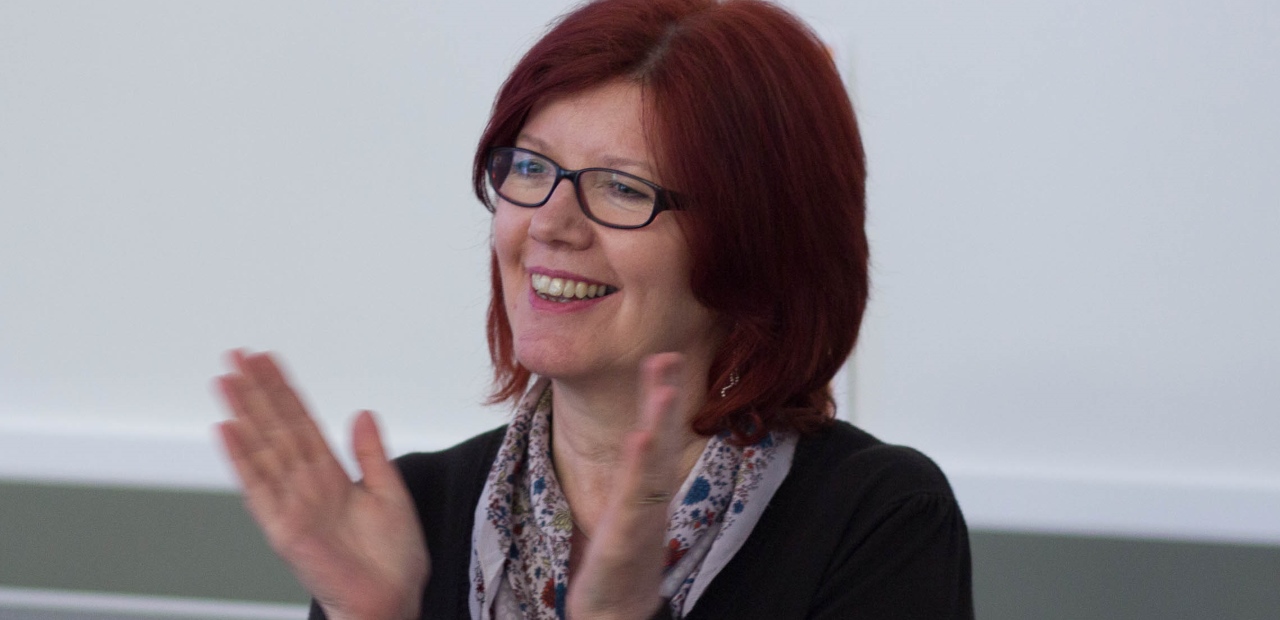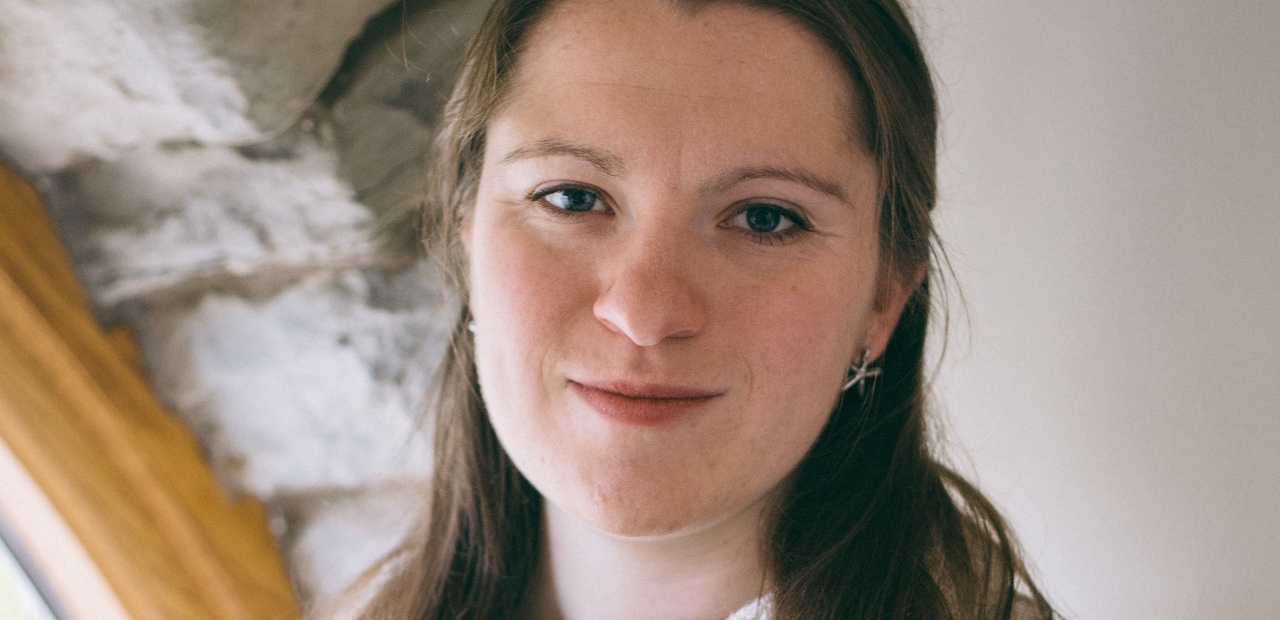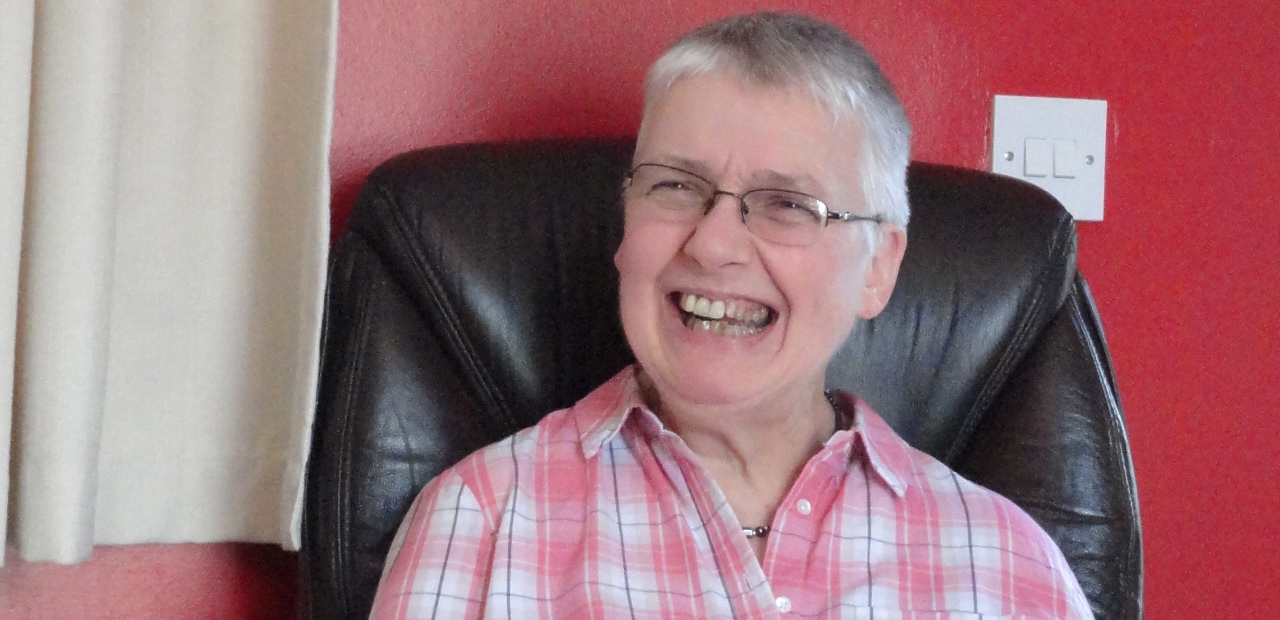This year participants in Penguin Random House's WriteNow mentoring scheme became SoA members. As PRH continues its selection process for 2018 mentees three authors tell us how they got involved in the scheme and what it has meant for them.
Geraldine Quigley

(Image © Gbenga Afolabi/Commonword)
I always knew I could write, well enough to impress a teacher anyway, and I always had a desire to write. But in a world where most girls wanted to be hairdressers or work in a nice office, doing typing and shorthand, writing seemed extraordinarily other worldly. And I wasn’t incredibly ambitious.
How many times have you read accounts of published authors who spent their childhood scribbling stories from the age of two, laying the foundations of a career that seemed destined for them? That wasn’t me. My early years were spent in my own head, living out fantasies of my own making, the youngest in a big family of eleven kids. As a teenager, all ambition was abandoned in the pursuit of boys. The extent of my writing career as a child was having the nun who taught me English, read my homework to the old people in the care home she visited, because she thought they were good. Sister Rose, bless her - she saw potential. But I was not a scribbler.
Things changed as an adult. By my early twenties I began to feel that I had an unused resource, like a muscle that I never got to flex. If ever anyone asked me what I would love to do, given a chance, my answer was always, to write. So why didn’t I start in my then? I could say an early marriage and three kids by the time I was thirty, stopped me, but they didn’t. I wrote short journalistic pieces for the socialist paper, The Militant, and occasional articles for publication in the local paper, to publicise local campaigns. Writing fiction, that seemed impossible to me - not the impossible task of getting published (which came later) - but writing fiction itself, the making stuff up part. I didn’t believe I had the skill.
By 2013, when Derry was the UK City of Culture, I had a manuscript - a short family memoir about how we cared for our mother as she succumbed to dementia. I hadn’t the guts to do anything with it, believing it was either not good enough, or it would meet with disapproval. Then, one afternoon, while standing with a crowd in the street, during the All Ireland Feile, watching a group of children perform, I realised I was envious of them. They were playing the fiddle, a family group. It didn’t matter that they made mistakes, or weren’t the best. They had a talent and they were using it, and it was wonderful to see. So I published my short book, online. It wasn’t brilliant, but it was out there. Yes, there was disapproval, but I made a decision that such disapproval would not put limits on my life and what I did with it. That decision changed everything.
I began my first novel. The mystery of fiction revealed itself to me, like the third secret of Fatima: it is what you write about, that is crucial. I write about things that drive me, make me angry, make me laugh. And it seems I am good at it. More than that, it is good for me.
When I heard about Write Now, I was working in a dreadful place: 10 hour shifts, four days a week, on minimum wage, with, seemingly, no way out. On my days off, I wrote short fiction, and helped edit a local litzine called Shift. And of course, I was working my way through my first draft of Music Love Drugs War.
There were days when I walked into work repeating, ‘this is not my life - this is not what I do’, reminding myself that I wasn’t just a bum on a seat in the call centre. It got me, physically, through the door, and through another day. Writing held me together, gave my life value and worth. I was more than the job I did, more than what people thought I should be. It would have been easy to give up, to think, ‘Why are you doing this? No one is ever going to read it’, and I did have plenty of those moments. But I kept going because it empowered me, because I allowed myself to write.
When I was sent the link for the Write Now Project by a friend, I read the criteria and thought, ‘I have all that, and it’s free!’ So much of being an emerging writer is about contests and competitions, literary festivals and fees that I could not afford. Here was Penguin, offering an incredible opportunity that was actually accessible. Not even a broken laptop could stop me from getting my application in. I wrote it out in a fit a rage, on a cobbled together PC, using my television as a monitor. I think the anger helped!
The fact that I got to the Manchester event was life changing. Everything else, to be shortlisted and then chosen as one of the twelve mentees, has been nothing short of miraculous. Penguin Random House have told me I am a writer. And they will do their utmost to make me a better writer. That’s what I want from this year. I want to write better and I want to be published.
If there is one thing I want to say to anyone reading this and thinking about entering Write Now 2017, it is this: I went to the Manchester event with no more expectation than to be near the touchstone of international publishing and maybe learn something of value. Every other person I spoke to that day, seemed so much cleverer, talented, younger and with a better book idea than me. And they were all going to be selected - I was sure of it. I sat beside a woman who told me she had almost walked away from the building that morning, so sure was she that she didn’t have what it took to succeed. But I got through to the final twelve, and so did she. And so can you.
Katie Hale

(Image © Supal Desai)
I nearly didn’t apply for WriteNow. I thought I probably wouldn’t get onto the insight day. I thought nobody would be interested in this weird little novella I’d had floating around my head for the past couple of years. I thought I should maybe just watch something on Netflix instead.
After all, I thought, I’m a poet, not a novelist, and maybe I should just stick to what I know.
Although I wrote prose, I wasn’t sure it was any good. When you write fiction you suddenly have to deal with all these other complicated things that aren’t so central to poetry, like character development and plot and sustained engagement over a longer piece of work. I didn’t think I knew how to do any of those things.
Still, I gave it a shot. I sent in my application, thinking that if I was lucky I might get a place on one of the insight days, and maybe I could get some tips on how to improve my prose there.
The Manchester insight day arrived, and somehow I’d been invited to attend. I waited nervously beside a lunch table I was too anxious to eat anything from, for my one-to-one with editor Tom Avery. I was ready to take whatever criticism he made of my writing style – but his comments were very positive. He made a couple of structural suggestions, both of which felt right the moment he suggested them. Other than that, the message was clear: keep going.
If WriteNow has taught me anything so far, it’s that ‘keep going’ is perhaps the most important mantra you can have as a writer. When you’re struggling through a book-length work, with twenty thousand words banked up on your computer screen and still the ending is nowhere in sight, and the middle section of your novel feels like a foul-smelling bog that’s ensnared you and might just drag you under, and you don’t know how you’ll ever get out of it – keep going.
When I applied for WriteNow last October, I’d barely written down any of my novel – though it’d all been there in my head for some time. By the time the insight day came around in February, I was about half way through a first draft. Now, that first draft is complete and I’m ready to meet Tom again to talk through it, so I can turn it into a slightly better second draft. Then a third draft, which will hopefully be better still. And so on, and so on.
A novel might be a huge undertaking, but WriteNow has helped me to think of it in stages; at every point, it’s just about getting to the next stage. The next few thousand words. The next feedback meeting. The next draft.
There are so many people who talk about wanting to write a novel, but WriteNow has pushed, supported and motivated me to stop being one of them. Instead, I’ve had the confidence to sit down and actually write the thing – and what’s more, I’ve gained the confidence to call myself a novelist.
Chris Brougham

As a child I heard our family history passed down by female storytellers: literacy was largely a male domain. This gradually changed as school teachers encouraged me to write my stories and enter them into competitions. Since then I’ve had a spasmodic relationship with writing, dictated by varying demands on my time and energy. However, the need to write never completely disappeared and now has a central role.
Writers are often asked, “Why is writing important to you?” My rather glib response recently has been, “I write to remain sane.” This is true because writing has helped me heal following a nervous breakdown. However, writing is also important because it fulfils my artistic side by enabling me to paint pictures with words.
I resisted including disability in my fiction, if my characters contained aspects of myself, it was as non-disabled versions. This was partly because I didn’t want to become known as a disabled writer who wrote about disability, but also because my non-disabled alter egos provided me with a fantasy world in which I could lead a life denied me by social, environmental and institutional barriers. The trouble was that my writing lacked authenticity in important areas because I overreached my experience.
Upon reflection, I think this avoidance contributed to the periods when I felt unable to write. Once I included a disability perspective in my work, I discovered an engaging narrative voice that had previously only been glimpsed. I’m not saying that experiences are not transferable, rather, I’ve discovered that I had to write from my reality before I could successfully use my experiences to inform my fiction.
My book is essentially about not giving up on oneself just because you feel disadvantaged by society. So, in those terms I think its message will apply to many readers in varying circumstances. However, I hope that my story will help society to see disabled people as ordinary folk and contribute an individual’s perspective to the body of knowledge that already exists in relation to disability issues.
I’ve completed a MA in Creative Writing at Edge Hill University, which taught me a great deal and boosted my confidence in my abilities as a writer. However, I still lack confidence regarding publishing and hope the WriteNow experience will provide an opportunity to become more self-assured in this area.
Through conversations with my editor I’ve learnt that the relationship between writer and editor is more of a “partnership” than I envisaged. I’ve found my editor to be a supportive, understanding and enthusiastic person who is willing to listen and work with me.
The most reassuring aspect of my WriteNow experience so far has been to see the publishing industry showing more interest in social diversity. If the industry continues in this direction, it could provide an important platform from which writers like the mentees can demonstrate the validity of lives less ordinary. I don’t regard myself as an exceptional person; thousands of people are in a similar position as me. I simply have the skills and opportunity to tell one of life’s stories.